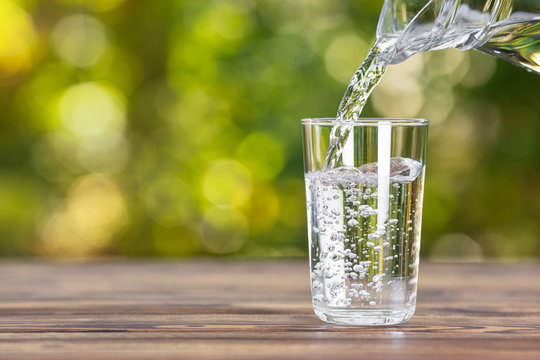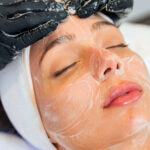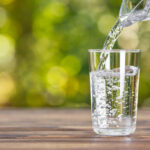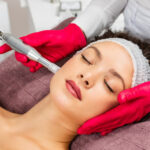Hydration and Skin Health in NYC Summers: Why Water and Moisturizer Matter
In summer, skin loses water at a faster rate due to heat, sweat, and environmental exposure. In cities like New York, where temperature, humidity, pollution, and air conditioning are constant variables, skin dehydration is common—even among people with oily or combination skin.
Hydration is essential for maintaining the skin’s elasticity, smoothness, and barrier function. Proper hydration requires two sources: internal water intake and external moisture retention through skincare. One cannot replace the other.
How Skin Loses Water
Water evaporates from the skin in a process called transepidermal water loss (TEWL). TEWL increases with:
Heat and humidity (more sweat, more evaporation)
Dry indoor air (especially air conditioning)
UV exposure (compromises the skin barrier)
Caffeine and alcohol (diuretic effects reduce water availability)
Physical activity (water loss through sweat)
Environmental stressors in NYC—like wind tunnels from buildings, walking long distances in heat, or constant transitions between subway and street—intensify this loss.
Internal Hydration: How Water Supports Skin
Internally, water helps transport nutrients to skin cells, remove waste, support circulation, and regulate inflammation. While drinking water doesn’t directly hydrate the outer layer of the skin, it maintains the conditions necessary for healthy cell turnover and tissue repair.
General recommendation: drink half your body weight in ounces of water per day.
A 140 lb person = ~70 oz of water daily (~9 cups)
Add ~8 oz per caffeinated or alcoholic beverage
Add 16–32 oz per hour of exercise or sweating
Electrolytes (sodium, potassium, magnesium) can improve fluid absorption and retention, especially in hot weather or post-exercise. Low-sugar electrolyte powders or coconut water are preferred over sports drinks.
Visible Signs of Dehydrated Skin
Fine lines appear more pronounced
Skin tone looks dull or flat
Increased sensitivity or redness
Flaky texture, even in oily areas
Uneven makeup application
Tight or itchy sensation after cleansing
These symptoms often develop even with a consistent skincare routine when hydration is not balanced from both inside and outside.
External Hydration: The Role of Moisturizers
Moisturizers do not add water to the skin. Instead, they prevent the water already present in the skin from evaporating.
Effective moisturizers combine:
Humectants (e.g., hyaluronic acid, glycerin): attract water into the skin
Emollients (e.g., squalane, fatty acids): smooth skin texture and fill in micro-cracks
Occlusives (e.g., dimethicone, petrolatum): form a barrier to lock in moisture
In summer, lightweight formulations with water-based humectants and breathable emollients are often better tolerated, especially in high humidity.
Moisturizer should be applied immediately after cleansing or applying a serum—while the skin is still slightly damp—to trap water in the stratum corneum (outer layer).
Hydration and Skincare Treatments
Professional skin treatments can improve hydration by supporting skin renewal, barrier repair, and product absorption. Specific treatments that support hydration include:
Hydrating facials: Cleanse, exfoliate, and infuse moisture into the skin
Microneedling: Stimulates collagen and improves the skin’s ability to retain moisture
LED light therapy: Reduces inflammation and supports barrier repair
Lymphatic drainage (e.g., Endospheres Therapy): Reduces puffiness and enhances circulation
After any treatment that disrupts the skin barrier—such as microneedling—hydration becomes even more critical to support recovery and enhance results.
Summer-Specific Considerations in NYC
Urban heat islands raise local temperatures above surrounding areas, increasing sweat and TEWL
Pollution exposure generates oxidative stress, weakening the skin’s protective barrier
High UV index increases the need for both sunscreen and hydration to maintain barrier integrity
Indoor A/C systems remove moisture from the air, drying skin faster than outdoor environments
Individuals in NYC often experience rapid shifts between environments (e.g., street to subway to office), creating microclimate changes that stress the skin.
Best Practices for Staying Hydrated in Summer
Daily Water Intake Strategy:
8–16 oz upon waking
8 oz mid-morning
8–16 oz with lunch
8 oz mid-afternoon
8 oz with dinner
8 oz before bed
Topical Hydration Strategy:
Cleanse with a non-stripping, pH-balanced cleanser
Apply a hydrating serum
Follow immediately with a moisturizer
Use SPF daily; reapply every 2 hours when outdoors
Optional: facial mist midday to reduce TEWL
Avoid:
Over-exfoliating in summer (damages barrier)
Using products with high alcohol content
Excess hot showers or steam rooms (increase water loss)
Summary
In NYC summer conditions, the skin is exposed to accelerated dehydration through both external and internal factors. Maintaining skin hydration requires:
Consistent water intake adjusted for lifestyle and temperature
Barrier-supporting moisturizers to reduce TEWL
Optional treatments that support skin function and moisture retention
This two-part approach—hydrating from within and sealing it externally—is necessary to maintain skin resilience, texture, and clarity through the summer.






